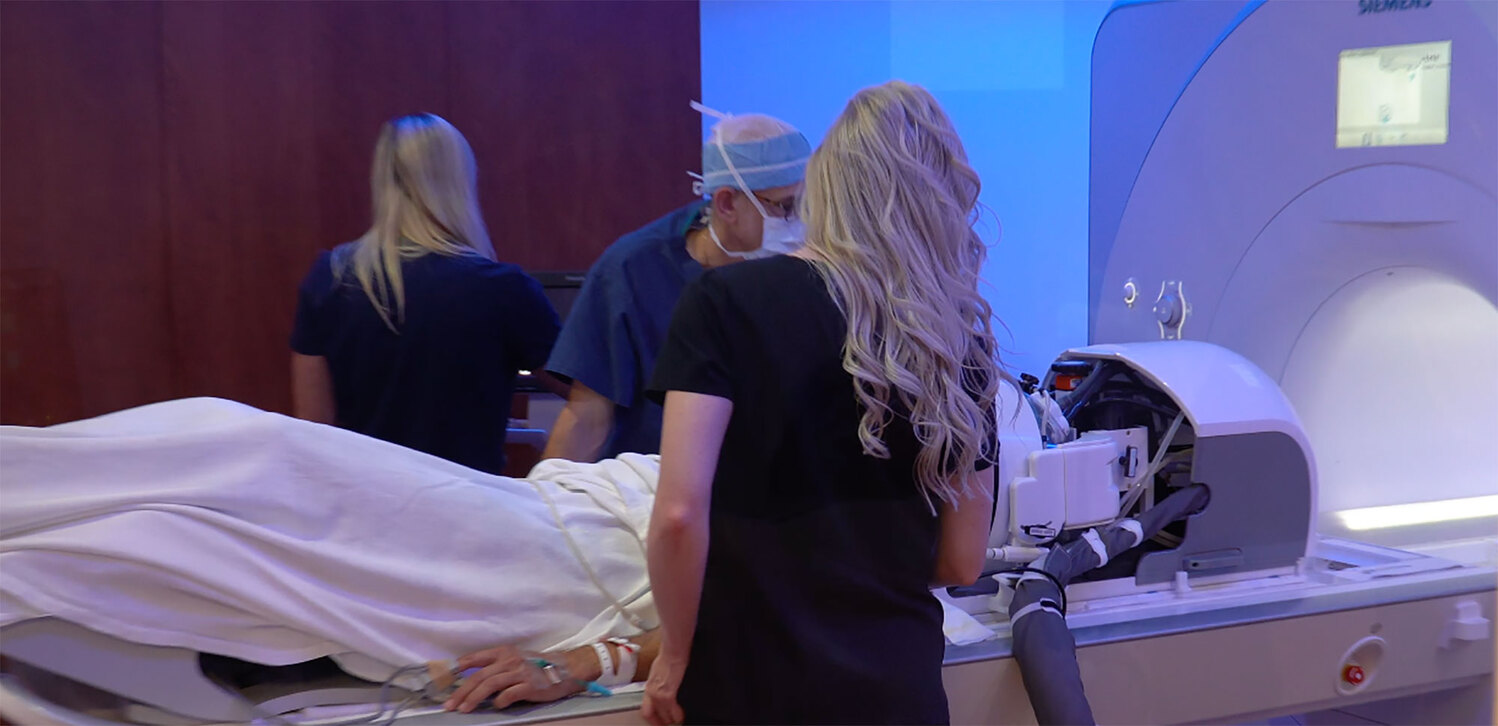NEUROSURGERY IN HOUSTON
What type of procedures do neurosurgeons perform?
Neurosurgeons are specialists in the surgical treatment of conditions that affect the brain, spinal cord, and nerves. Some of the most common procedures performed by neurosurgeons include:
Brain surgery: This includes procedures such as removing brain tumors, repairing aneurysms, and treating traumatic brain injuries.
Spinal surgery: This includes procedures such as decompressing nerves in the spinal column, treating herniated disks, and correcting spinal deformities.
Endovascular surgery: This includes procedures such as coiling or clipping aneurysms, embolization of vascular malformations, and treatment of ischemic stroke.
Stereotactic and Functional Neurosurgery: This includes procedures such as deep brain stimulation, spinal cord stimulation and other procedures that uses image guidance to reach specific areas of the brain or spinal cord to treat conditions such as Parkinson's disease, chronic pain and movement disorders.
Peripheral Nerve Surgery: This includes procedures such as repair of nerve injury or entrapment, nerve tumors and brachial plexus injuries.
Pediatric Neurosurgery: This includes procedures such as treatment of congenital malformations, hydrocephalus and brain tumors in children.
It is important to note that not all neurosurgeons perform all of these procedures, and some may have a particular subspecialty or focus within the field of neurosurgery.
What to consider when looking for a neurosurgeon?
When looking for a neurosurgeon, there are several things you should consider:
Board Certification: Make sure the neurosurgeon is board certified by the American Board of Neurological Surgery (ABNS) or the Royal College of Physicians and Surgeons of Canada.
Experience: Look for a neurosurgeon with experience in treating the specific condition you have.
Education and Training: Neurosurgeons should have completed a neurosurgical residency program, which typically takes seven years to complete after medical school.
Patient Outcomes: Look for a neurosurgeon with a track record of good patient outcomes. You can ask the neurosurgeon for their complication and mortality rates.
Availability and Accessibility: Consider how easy it is to schedule an appointment and communicate with the neurosurgeon's office.
Hospital Affiliation: Make sure the neurosurgeon has privileges at a reputable hospital, such as Houston Physicians Hospital in Webster, Texas and check the hospital's safety and quality ratings.
Reviews and Feedback: Check online reviews from previous patients to get an idea of their experience with the neurosurgeon.
Quality of communication: Make sure the neurosurgeon is able to explain the diagnosis and treatment options in a clear and understandable way.
It is important to remember that finding the right neurosurgeon for you may take some research and time, but it's worth it to have the best possible outcome for your condition.
A great neurosurgeon to consider is Dr. Greg Bonnen of Texas Brain and Spine who works out of Houston Physicians Hospital.
MRI-guided focused ultrasound
MRI-guided focused ultrasound (MRgFUS) is a non-invasive medical treatment that uses high-intensity focused ultrasound waves to heat and destroy diseased tissue, such as tumors or uterine fibroids. The treatment is guided by MRI imaging, which allows for precise targeting of the ultrasound waves and real-time monitoring of the treatment's effects. MRgFUS is considered safe and effective, and has been approved by regulatory agencies such as the FDA for certain indications, including the treatment of uterine fibroids and bone metastases.
MRI-guided focused ultrasound (MRgFUS) is also being as a treatment option for essential tremor, a neurological disorder that causes involuntary shaking of the hands and other body parts. The treatment involves targeting ultrasound waves to a specific area of the brain called the thalamus, which is thought to be involved in the regulation of movement. The ultrasound waves cause a small lesion in the thalamus, which can reduce or eliminate the tremor. The procedure is performed while the patient is under general anesthesia and is guided by MRI imaging to ensure accurate targeting of the ultrasound waves. Clinical trials have shown that MRgFUS can be effective in reducing or eliminating tremors in some patients, but more research is needed to fully understand its safety and efficacy.
To learn more about Focused Ultrasound, watch the video below to see how Dr. Bonnen performs this breakthrough procedure at Houston Physicians Hospital


